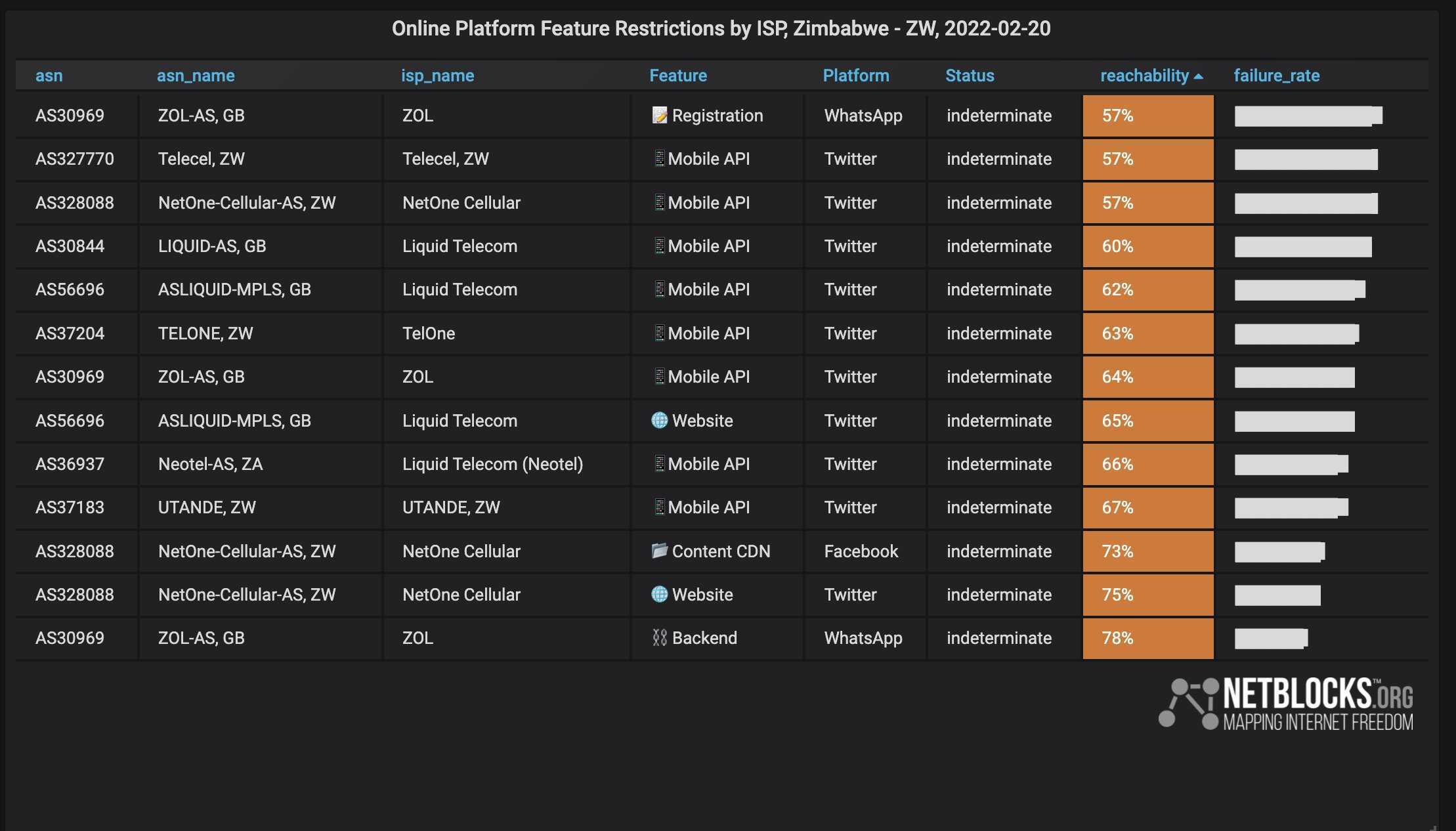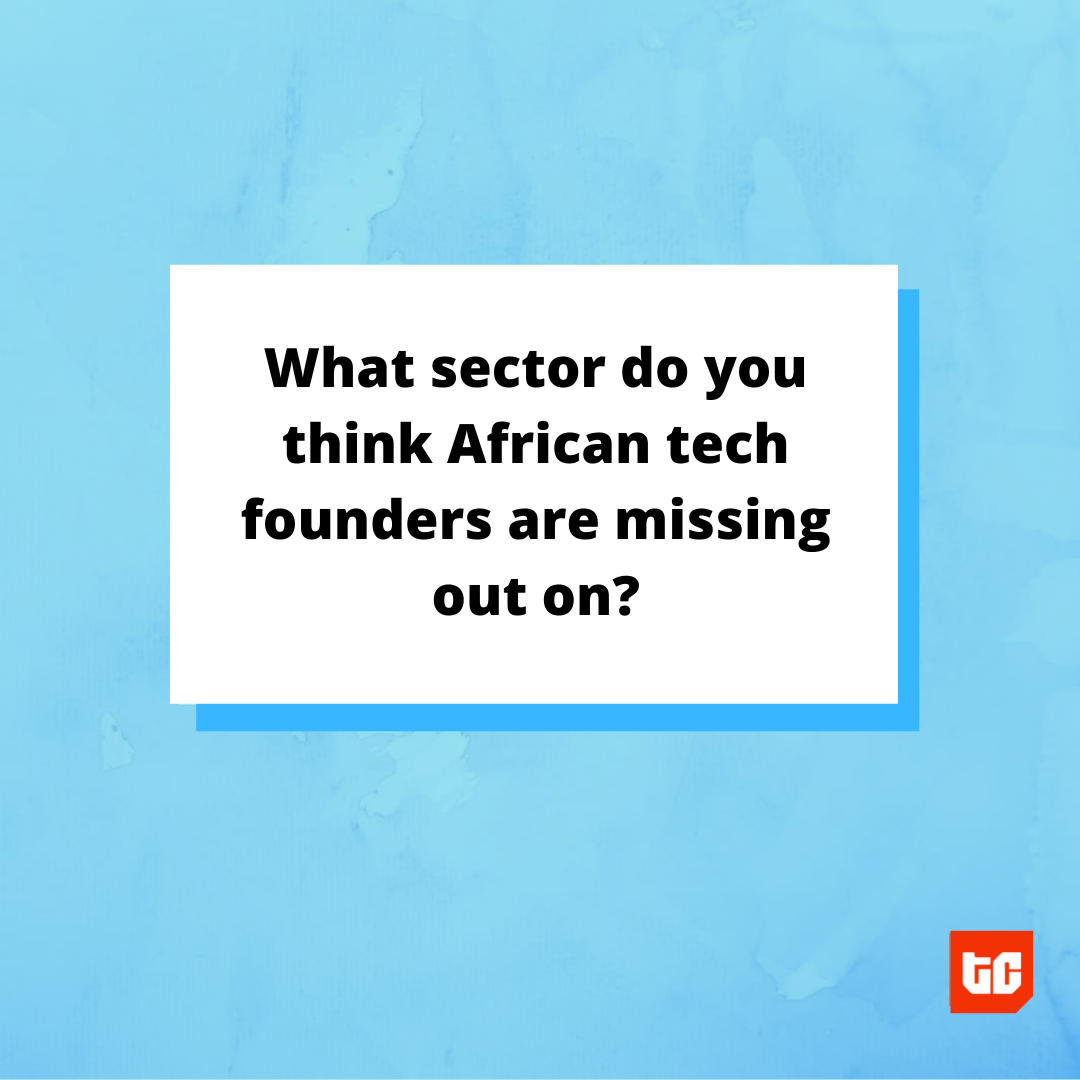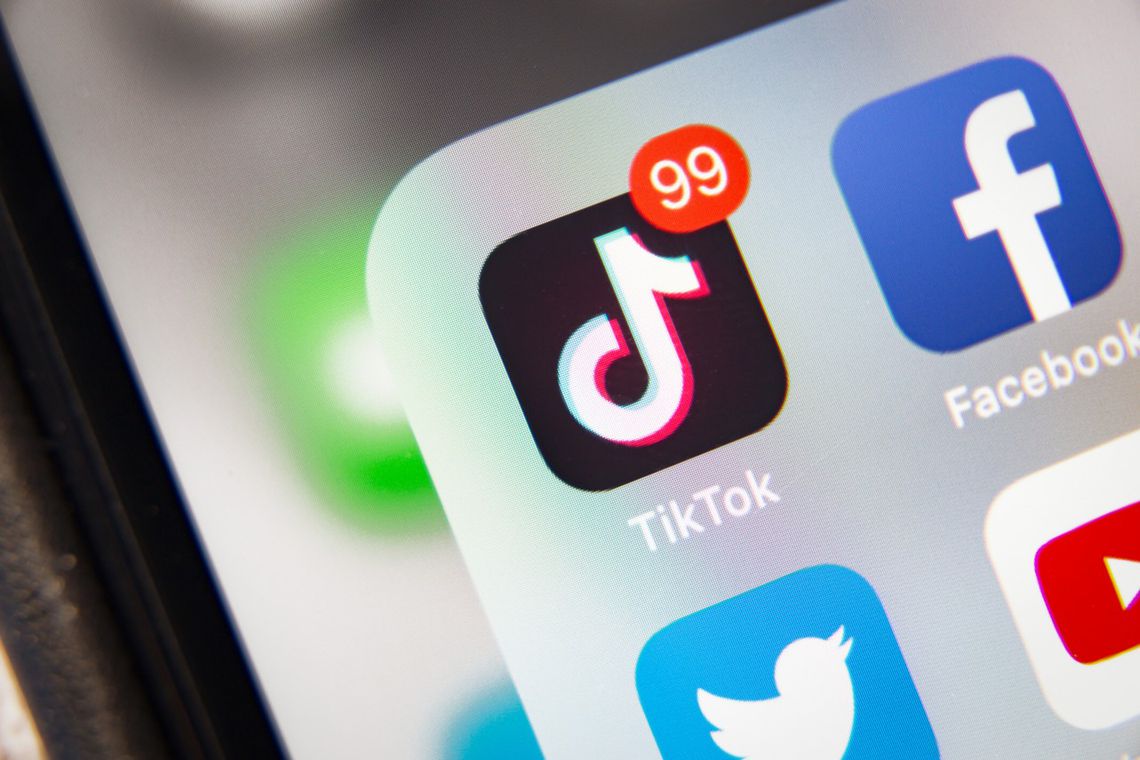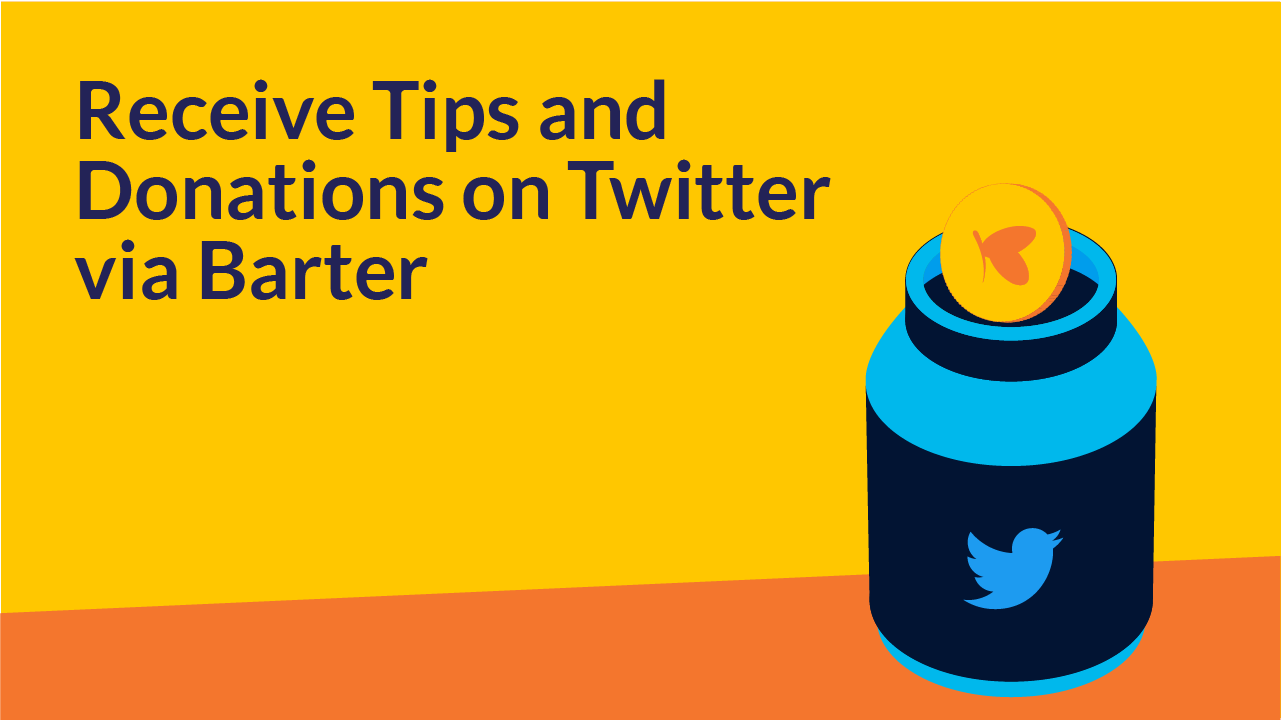
IN PARTNERSHIP WITH

Good morning 🌄
We’re only two months into 2022 but African startups have already raised a whopping $1 billion across 130 funding deals, that’s almost ¼ of what we raised in 2022. 🥳
According to The Big Deal, about 76% of the funding comes from the Big 4—Nigeria, South Africa, Kenya and Egypt—but Tunisia dealt huge numbers with Instadeep’s $100 million Series B raise.
Q1 is not over yet and many more startups still have funding announcements on the way. How much do you think we’ll end 2022 with?
In today’s edition
- Did Zimbabwe disrupt internet access on Sunday?
- TikTok’s timely tackle
- Who is pitching at Africa’s Tech Summit?
- Scammers steal $1.7 million worth of NFTs
- Tech probe
- Event: FDE Summit 2022
DID ZIMBABWE DISRUPT INTERNET ACCESS ON SUNDAY?

It may be a new year but it appears that African governments have not turned over a new leaf.
This year, the Burkinabe government led the internet blockage wave by blocking access to mobile internet on January 11. While access was returned shortly after, Facebook remained blocked in Burkina Faso. Days later, upon the military ousting of President Marc Roch Christian Kaboré on January 24, access to mobile internet was once again shut down in Burkina Faso, only to be restored after 1 day.
On Sunday, Zimbabwe took a different route on its journey to internet blocking.
What’s happening in Zimbabwe?
It’s election season soon.
On March 26, Zimbabweans will elect representatives into over 140 parliamentary and council seats. The Citizens Coalition for Change party, a new political party formed by presidential aspirant Nelson Chamisa, is up against ruling party Zimbabwe African National Union-Patriotic Front (ZANU-PF), and the second most populous party, the Movement for Democratic Change (MDC).
The problem? Well, Nelson Chamisa was previously the head of the MDC after courts ruled that he was not the legitimate leader of the party, following his loss to ZANU-PF at the 2018 presidential election.
On Sunday, both ZANU-PF and the Citizens Coalition for Change Party held separate rallies in Harare to address citizens. However, Zimbabweans who tuned in to the latter’s rally which was streamed on Facebook reported that they lost access at one point or the other due to slow internet connection.
So did Zimbabwe degrade mobile internet?
Surfshark, a global cybersecurity firm, confirmed to TechCabal that internet speed was disrupted in Zimbabwe on Sunday. The disruption was most likely aimed to prevent multiple operators from streaming the live event, Surfshark states.

Another cybersecurity firm, NetBlocks, also confirms that “metrics [from Sunday] are potentially consistent with the slowing, or throttling, of service”. Leading activist Hopewell Chin’ono also confirmed the disruption.
Zoom out: It’s not Zimbabwe’s first time tampering with internet access. In 2019 and 2020, the government shut down the internet ahead of planned protests and fuel price demonstrations.
Yet to get paid for your hilarious tweets?
Simply add Barter to your Twitter profile and start accepting tips and donations from your followers.
Learn how to set up Barter for Tips.
This is partner content.
WHEN THEY GO SHORT, WE GO LONG

In 2020, Instagram launched Reels and Snapchat launched Spotlight. YouTube launched Shorts and Pinterest launched idea pins the following year. All of them are short, entertaining video formats capped at 1 minute.
The inspiration? It’s TikTok. The short-form video app owned by China’s ByteDance has more than 1 billion monthly active users, which brings it in line with Instagram and places it above Snapchat.
Launched in 2017, TikTok’s rapid growth was attributed to its use of music and an extraordinarily powerful algorithm that learns what content users like to see far faster than many other apps. Notably, TikTok also started a short-form video revolution with its 1-minute cap.
Going the opposite direction
TikTok, which started with short videos, is now keen on exploring longer videos. Since it announced in July 2021 that users can record 3-minute videos, the app has conducted widespread testing of five-minute-long videos between August 2021 and February 2022. It’s even tried 10-minute videos among a small group of beta testers.
Why? The decision is largely driven by the potential for more advertising revenue. It’s betting that longer videos gain more attention, and will allow advertisers to sell more ads.
In addition to that, longer videos could help keep more matured TikTok’s users engaged, users who are more used to watching longer content on YouTube and less interested in participating in dance challenges.
Zoom out: In a world where the attention span of people is shrinking, TikTok is keen on testing the limits.
At Busha, we want everyone everywhere in Nigeria to have access to crypto. That’s why you can buy as low as ₦250, set recurring buys, get the best rates, and soon 🤐 on Busha. Join 300,000+ Nigerians already using Busha.
This is partner content.
WHO IS PITCHING AT AFRICA’S TECH SUMMIT?

Speaking of funding and raises, the Africa Tech Summit Nairobi (ATSNBO) has announced the finalists who will pitch live to investors at the Summit on February 23 and 24.
A little bit about the Summit
The summit was founded in 2016 to provide insight and networking with the African tech ecosystem. It brings together tech leaders, multinational organisations (MNOs), banks, international investors, entrepreneurs, governments, trade bodies, media and leading ventures to drive investment and business in African tech.
The Summit has held over 10 events across Rwanda, the UK, the US, and China.
This year’s event includes speakers and guests from Google, Flutterwave, Paystack, Microsoft and SafeBoda, all of whom selected startups will get to pitch to.
So who’s on this year’s hot seat?
Nine startups have been selected across 4 countries—Ethiopia, Nigeria, Kenya and Egypt.
- Nigeria’s Arata is a next-gen online blockchain gaming, marketplace, animations incubator and video streaming company.
- Next, also from Nigeria, is Bitmama, a highly-secured and fast-growing crypto platform founded in 2018.
- Eshi Express PLC, founded in 2017, is a logistics startup that is aiming to transform last-mile delivery in Ethiopia.
- Founded in Nigeria in 2019, Flex Finance is a simple mobile platform that allows SMEs manage and track their expenses, with little-to-no financial knowledge required.
- Kenya’s KaziNow was founded in 2017 and is catalyzing job creation and improving livelihoods for young and vulnerable populations, at scale.
- Nigeria’s LazerPay was founded in 2021. It’s a blockchain-powered payment infrastructure that allows people pay for items with crypto.
- Pravica was founded in Egypt in 2019 and the platform is a blockchain-based communication service that seeks to enable security and user privacy.
- Visual and AI Solutions (VAIS) is an agritech startup that provides agricultural solutions using innovative and proprietary AI/deep learning algorithms. It was founded in Egypt in 2015.
- Finally, there’s Kenya’s Zuri Health, a platform that allows patients to chat with doctors, buy medication from pharmacies, book labs and diagnostic tests or have doctors visit them at home.
Fincra provides APIs for making and receiving local & international transfers in EUR, GBP & NGN.
Our APIs fit into all payment applications allowing fintechs to offer virtual bank accounts in multiple currencies.
Sign up for a demo here.
This is partner content.
SCAMMERS STEAL $1.7 BILLION WORTH OF NFT

The NFT universe has been in a difficult spot all year long and in more recent news, scammers stole over $1.3 million worth of NFTs on Sunday.
Erm, how do you steal NFTs?
You have to be NiFTy about it.
Some scammers impersonate buyers of support services from hosting platforms like OpenSea and trick sellers into providing them with access to their wallets.
There are also instances where scammers use phishing scams to trick sellers into clicking links that trick unsuspecting sellers into giving access to their blockchain-backed assets. This happened with Fractal and Monkey Kingdom last December where about $1.35 million in total was stolen by hackers.
So what’s up now?
About 254 NFTs worth $1.7 million was stolen from 32 OpenSea users.
In simplifying the technicality behind the attack, The Verge explains that the users signed a blank check that transferred ownership of the NFTs without requiring payment.
Not much is known about the attack yet, but OpenSea’s CEO, Devin Finzer has confirmed that the attack did not originate from OpenSea’s website.
TECH PROBE

What do you think? Share your thoughts on Twitter, Instagram, or just respond to this mail. We’d love to hear from you.
EVENT: FDE SUMMIT 2022
Today, Tuesday, February 22 2022, Future Females continues hosting their biggest global summit yet, the Future of Digital Entrepreneurship Summit for over 10,000 game-changing entrepreneurs from around the world.
The online summit will dive into the digital trends and predictions for 2022 and how female entrepreneurs can leverage innovation to build and grow their businesses, with 9 international experts taking to the virtual stage.
The summit will cover 7 key themes including crypto, social media/trends, bootstrapping and product offerings. Speakers include Leandie du Randt, (SA), Presenter, motivational speaker & business owner, Yossi Hasson (SA), Co-Founder and CEO at Metaversal, Lauren Dallas (SA), Co-Founder and CEO at Future Females, and Kashvi Parekh, (IN), Community manager at World of Women, amongst others.
Find out more about the free event here.
What else we’re reading
- The Next Wave: Data everywhere yet nothing to show for it.
- The #NairaLife of a salesman who hated selling.
- Salesforce has established a South African office.
- Kenya’s parliament will hold a public hearing on the contested Huduma Bill next week.

























